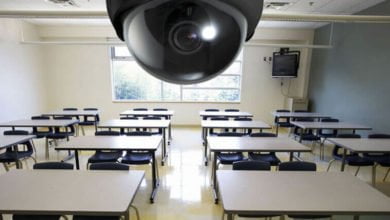
After the Central government notified the New Education Policy (NEP) to bring about sweeping changes in the education sector of the country, the higher education regulator, the University Grants Commission (UGC), recently announced that students can now pursue two full-time degree programmes simultaneously. This is a major change after the Central universities announced admission through a common entrance test, called the Central Universities Common Entrance Test (CU-CET). The test is for admission to undergraduate, integrated and postgraduate programmes in central universities across the country.
“As announced in the NEP 2020 and in order to allow students to acquire multiple skills, UGC is coming up with new guidelines to allow a candidate to pursue two degrees simultaneously. The degrees can either be pursued from the same or different universities,” UGC chairperson M Jagadesh Kumar was quoted as saying in The Indian Express.
Adopting the new guidelines is optional for universities. They can be implemented after the approval of the universities’ statutory bodies. “Universities will have the flexibility to decide if they want to offer such a scheme of programmes or not. The guidelines will only be applicable to lecture-based courses, including undergraduate, postgraduate, and diploma programmes. MPhil and PhD programmes will not fall under the same scheme,” Kumar added said while announcing the reform recently.
Earlier, the CU-CET was an attempt to end the extraordinarily high cut-offs in some Delhi University colleges because some state education boards such as the one in Kerala were too liberals with awarding marks in Class 12. In fact, there has been a debate in the country over why students from Kerala and other such states grab most of the seats in the DU colleges. The common entrance test will not only end this trend but also ensure that all central universities are enrolling quality students tested by the National Testing Agency, the body which will conduct the test. The common entrance test is also a step towards standardising admissions across central universities even though it will make the Class 12 marks redundant. In the prevailing admission process, most colleges induct students on the basis of Class 12 marks. But with different education boards having different evaluation processes and standards, often students of one board are in an advantageous position than that of the other board. Of course, a common entrance test will have its own issues but the objective is good.
As for pursuing two full-time programmes, students can combine a full-time degree with online, short-term, or diploma courses. Now both degrees can be in physical mode, or one can be offline while the other online. The option of two offline degrees is also available to students. These guidelines will apply to universities across India.
Under the “two-degree” programme, students can mix streams and courses. Students can choose a combination of a diploma programme and an undergraduate (UG) degree, two master’s programmes, or two bachelor’s programmes. If a student is eligible to pursue a postgraduate (UG) degree and also wants to enrol in a bachelor’s degree in a different domain, they will be able to pursue a UG and PG degree simultaneously. The class timing for both the programmes must not clash, according to a report in The Indian Express.
Students who are in the third or second year can enrol in the first year for another course as well. “Hope with the NEP more and more universities open up and allow students flexibility,” Kumar said while addressing the media on Tuesday.
The two-degree programme is not only applicable to freshers joining the first year but also to those who have already enrolled in a degree.
While the programme offers students plenty of options to choose from, they can pursue it only if they are eligible for admission to the universities or courses. For example, if the admission to one course is based on JEE (Joint Entrance Examination) score and the other on the CUET (Common University Entrance Test) score, the student will have to have cleared both.
All academic programmes have minimum attendance requirements for students to be able to take the exams. For the new programme, universities may have to devise or revise the attendance criteria. “UGC does not mandate any attendance requirements and these are the policies of the universities,” Kumar said.
Is the proposed structure practical? It of course depends on the capability of the student.
He said that pursuing two offline degrees might not be easy. However, it wasn’t impossible. “For example, if a student pursuing B Tech in IIT Delhi wants to study BA French in JNU in the evening, she can very well do that by just walking across the road,” he said.








